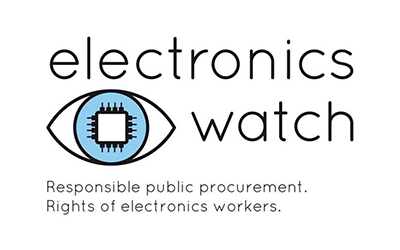Procurement
Sustainable Procurement is the process of recognising the negative and positive environmental, social and economic impacts of purchased goods, works and services. It is a cradle to grave approach and should consider the entire supply chain rather than just the individual product or service. The UN Marrakech Task Force define Sustainable Procurement as
"A process whereby organisations meet their needs for goods, services, works and utilities in a way that achieves value for money on a whole life basis in terms of generating benefits not only to the organisation, but also to society and the economy, whilst minimising damage to the environment".
Sustainable Purchasing Policy
As an organisation, we are a major procurer of IT supplies and services, food, paper, furniture, energy, cleaning equipment, services and have ambitious investment plans involving construction and renovation across campus.
In 2018/19 our non-pay expenditure was £67.5m. We have around 3000 suppliers. Since 2016 we have been signed up to NETpositive, allowing suppliers access to a free sustainability action plan tool.
We have implemented a category and risk management-based approach to our Sustainable Procurement Plan. Each commodity area of purchase has been evaluated for impacts (both positive and negative) on social, economic and environment. We have then ranked the commodity areas based on the total risk which will form our focus for our Sustainable Procurement Plan. This initial expenditure analysis in conjunction with a high-level sustainability impact analysis has identified Estates and Buildings, as well as other categories of spend including Catering Supplies and Services and Furniture, Furnishings and Textiles, which are all managed through our Estates and Facilities, as high risk. Estates and Facilities procurement is a priority area in our Sustainable Procurement Plan.
We follow a number of guiding principles around ethics, environment and equality in our Sustainable Procurement Plan as well as the following approach;
|
Clear direction from senior management Integrated sustainable procurement framework Clear sustainable procurement guidance Prioritise spend areas |
|
Provision of training and tools Benchmarking |
|
Taking account of non-financial benefits Life-cycle approach |
|
Better engagement with suppliers |
|
Work with suppliers |
Our strategy is also based on the UK Government Flexible Framework themes: People; Policy, Strategy & Communications; Procurement Process; Engaging Suppliers and Measurement & Results.
Our objectives
The following objectives have been established for our strategy:
- To ensure legal compliance and best practice in relation to sustainable procurement;
- To ensure sustainable procurement principles are considered as part of our value for money process in all stages of the procurement of supplies, services or works;
- To ensure environmental and ethical issues associated with each stage of the life cycle of goods and services are identified and controlled or influenced to minimise negative environmental or social impacts.
Our overarching aim is to progress along the Flexible Framework to reach Level 4 of the Flexible Framework.
For further details of our commitments and approach to sustainable procurement please see our Estates and Facilities Sustainable Purchasing Policy.
If you are a member of staff, please get in touch with the Environmental Sustainability Team for support in embedding sustainability into your procurement.
If you are a current or potential supplier you should be aware the University encourages all organisations to register with the NETpositive Engagement tool.
Please also see our specific actions for sustainable food, construction and our compliance with the Modern Slavery Act below.
NETPositive Supplier Engagement Tool

Working with NETpositive Futures, we've introduced a tool for suppliers to generate their own bespoke Sustainability Action Plan. It's free, easy to use and allows organisations to:
- Undertake a simple sustainability analysis of business impacts
- Create a bespoke plan to become more sustainable, in-line with Provider Organisation aspirations
- Find supporting, business-relevant sustainability information
- Demonstrate progress against their individual action plans
- Use the plan to communicate what they are actually doing, not just what they're committed to at a policy level
Electronics Watch

Through our membership of North West Universities Purchasing Consortium, we are members of Electronics Watch, an independent monitoring organisation set up with the purpose of protecting the rights of workers within electronics supply chains. Through this membership we can collaborate to have a positive impact on workers through the electronics we purchase. We are also exploring ways to ensure transparency in supply chains of other goods.

